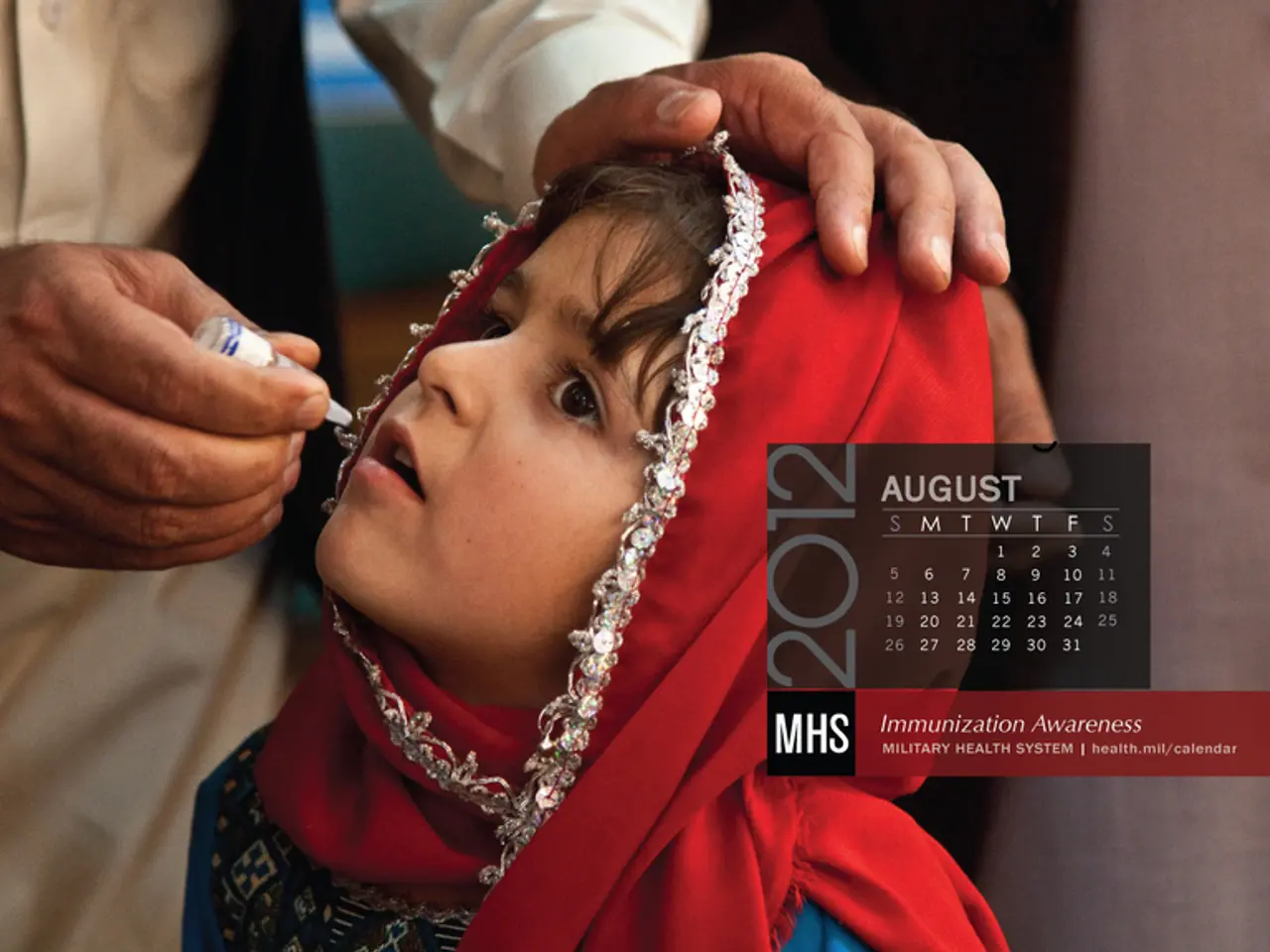Exposure to measles cases reported at QEII Halifax Infirmary, tallying up to a total of 61 confirmed cases.
In the past two months, Nova Scotia has seen a significant increase in measles cases, with a total of 61 cases now directly connected to cases announced in July and August. The latest measles cases were detected at the QEII Halifax Infirmary.
Measles, a highly contagious viral illness, is transmitted by direct contact with droplets or airborne spread. The symptoms of measles include fever, cough, runny nose, red eyes, small white spots, and a red blotchy rash that spreads from the face to the body.
The Nova Scotia Health Authority's Public Health division has been responsible for measures to combat the measles outbreak in the province. Many of the cases have been found in large households and specific, small communities.
To prevent the spread of measles, everyone born after 1970 in Nova Scotia is advised to receive two doses of the measles-mumps-rubella (MMR) vaccine after their first birthday. The MMR vaccine is crucial in preventing measles in Nova Scotia.
Anyone who was at the exposure sites during the specified times and is pregnant, immunocompromised, or under the age of 12 months old is advised to contact Public Health immediately. This includes a public exposure at the Infirmary's emergency department from 10:45 p.m. on Sunday to 1:20 a.m. on Monday, and a public exposure at diagnostic imaging (general imaging and ultrasound) at the QEII Halifax Infirmary from 9:30 a.m. to 12:30 p.m. on Monday.
While most people recover from measles within two-to-three weeks, it can lead to serious complications, particularly for those who are not vaccinated or have weakened immune systems. It's important for everyone to take precautions to protect themselves and others from this preventable disease.
The Nova Scotia government urges everyone to ensure they are up-to-date with their vaccinations and to contact Public Health if they have any concerns or questions about measles or the MMR vaccine.
Read also:
- Peptide YY (PYY): Exploring its Role in Appetite Suppression, Intestinal Health, and Cognitive Links
- Toddler Health: Rotavirus Signs, Origins, and Potential Complications
- Digestive issues and heart discomfort: Root causes and associated health conditions
- House Infernos: Deadly Hazards Surpassing the Flames








